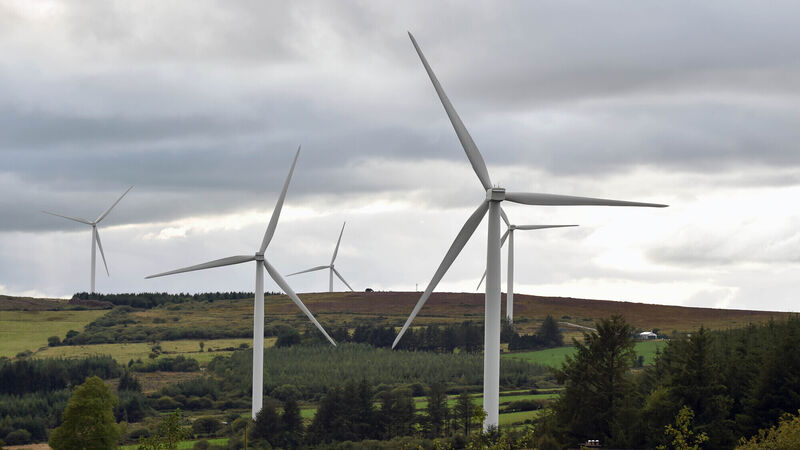Supreme Court agree to hear claim windfarm is operating outside planning permission conditions

The Wind turbines at Ballyduff Upper, Co Waterford. Picture: Eddie O'Hare
The Supreme Court has agreed to hear a claim that certain parts of a Co Waterford-based windfarm as built was not authorised by its planning permission.
The appeal concerns the operation of an 11-turbine windfarm at Ballyduff in Co Waterford by Barranafaddock Sustainable Electricity Limited.














